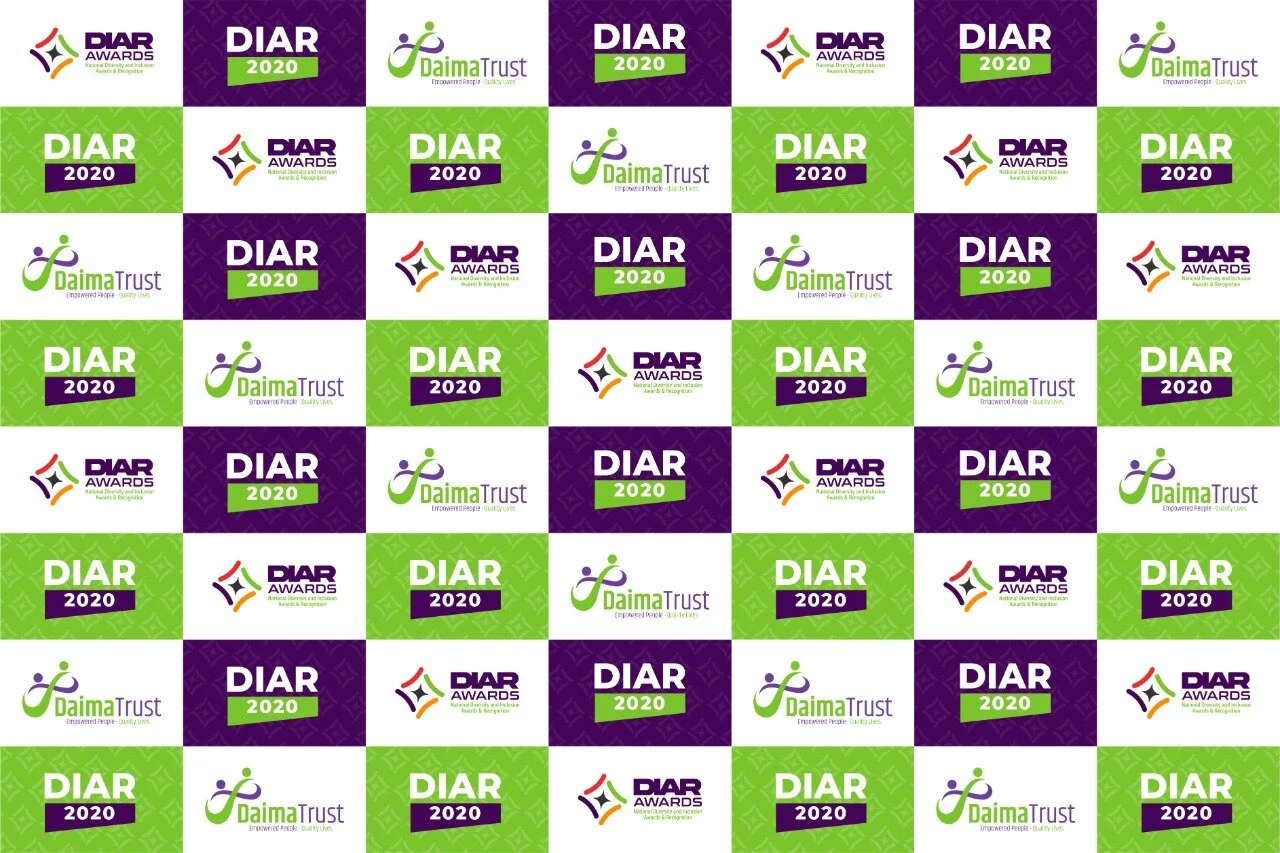What is better than spending a night of dining and chatting?
Well, an added layer of champions of inclusion and diversity is the ultimate Friday night. I am talking of the 2020 DIAR (Diversity Inclusion Awards and Recognition) gala dinner that was held on 12th march 2021. Our host, Daima Trust went above and beyond in ensuring the night was educative, entertaining and challenging.
For a long time, inclusion and diversity were topics looming in the background never to be discussed openly or in depth. The availability of the DIAR gala proves that Kenya and the world is improving and finally acknowledging the groups that have been sidelined by generations on end.
In context, Albinos have been marginalized due to many limiting beliefs such as; the condition could be transmitted and it is a result of witchcraft. As dramatic as these beliefs sound, they have resulted to an unconscious bias that plays out in many socio-economic contexts.
However, organizations such as National Cohesion and Integration Commission and Albinism Society of Kenya (ASK), have developed initiatives that cater for the needs of that community, fight for their participation in development both in the civil-society and the governance sectors. Despite the many campaigns on “disability is not inability”, people with disabilities (PWD) are still stigmatized in the community. Some of these biases are often justified by ‘well-meaning’ people from an argument on pity. Often they miss the point; people with disabilities are capable and able to function fully in the society.
“PWDs require a supportive society with infrastructure that can accommodate their uniqueness and opportunities to contribute to the socio-economic development of the country”- NGEC chairman.
Religious and ethnic marginalization is yet another underlying issue that requires attention and amendment. Communities such as the Maasai and the Ongiek often lack the resources that are common with other communities due to the nature of their geographical roots.
Access to education, good health facilities, security and clean water is not a guarantee for these communities and yet they are discriminated against during recruitment and other development agendas. Organizations such as Safaricom and CocaCola PLC urged other employers to embrace diverse people in their recruitment process while being sensitive to factors such as gender, socio-economic characteristics and cultural background. Unconscious bias could lead to missed opportunities for cultures that were historically neglected.
What does The Youth Café do to ensure Inclusion and Diversity? The Youth Café was honoured to have the director, Willice Onyango recognized and awarded youth leader in the country. The Youth Café is proud to be a youth-led and youth-serving organization that has embraced the strength and resourcefulness of young people. The dimensions of exclusion that The Youth Café addresses are economic, social, political and cultural.
“Diversity has always been the true nature of the world. Our lack of acceptance does not make it any less real or important. It is our obligation to see beyond the societal labels whether real or imagined.”- Caroline Kamau
The Youth Café has an active and popular admission of interns and volunteers to its programs which builds the capacity of young people in different skill sets. We have worked with over 2000 interns who come from different countries as well as cultural and religious backgrounds. Our plan to work with interns and volunteers is a strategic decision that is designed to involve as many qualified youths as possible in development decisions. Youths have been segregated from the planning and decision making tables for a long time in the history of Kenya.
They are often labeled unqualified and unsettling to perpetrate the idea that they are not fit to be considered in such processes. Even the political arena has no space for young people to be in governance positions. While this is not a unique issue to Kenya, young people continue to show adamancy in various discourses such as advocacy in the civil societies. Young people want to be engaged and they are willing to take part in social change through this.
The Youth Café has built professional friendships with other organizations that enrich our network and span of work. Inclusion is often a touchy subject especially when the debate is blinded by the politics of gender or culture. In our quest towards equality of the genders or cultural representation, we have to understand that the first step is affirmative action. The society is not made of equally opportune individuals or groups that operate optimally. History has shown that there are existing imbalances that need to be addressed first.
For example, in a world where men have been historically favored, it is only right to empower women in order to bridge the existing gap. The same thing applies to cultural inclinations such as the social movement on black people. We are well aware of the existing biases in Kenya such as men against women, the rich versus the poor and larger tribes versus small ones. We aim to work while considering these privileges.
Moreover, The Youth Cafe with the help of IREX has a Gender and Social Inclusion (GESI) lens while implementing its new project,Youth Excel. The GESI approach is a detailed plan that is guided by the principle of social equity and inclusion for all.
It was an event to behold! One of a kind and for a good course!



